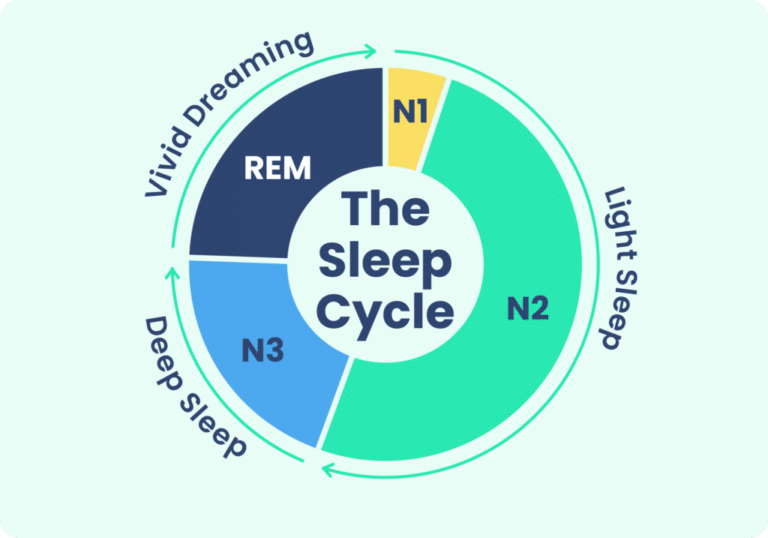Becoming a new parent is an incredible journey, but it can also be exhausting especially when you’re waking up every few hours to care for a newborn. For new parents with epilepsy, this phase of life presents additional challenges. Lack of sleep isn’t just tiring; it can be a seizure trigger. That’s why it’s essential for parents with epilepsy to develop strategies to protect their sleep and care for their newborn safely.
Let’s explore some practical tips, safety measures, and advice to help new parents with epilepsy navigate this life stage while prioritizing their health and their baby’s well-being.
Why Is Sleep Crucial for Parents with Epilepsy?

Sleep is vital for everyone, but it plays a particularly critical role for people with epilepsy. Sleep deprivation can:
- Increase the likelihood of seizures.
- Worsen concentration and mood, making parenting even more challenging.
- Impact overall health and energy levels, reducing your ability to care for your baby effectively.
As a new parent, getting uninterrupted sleep might seem impossible, but even small adjustments can help you get the rest you need.
Creating a Sleep Plan as a New Parent
Dr. Rahiwa Gebre, a neurologist specializing in epilepsy, suggests aiming for at least four hours of uninterrupted sleep at night and two hours of daytime naps. Easier said than done, right? Let’s break it down.
1. Postpartum Sleep Plan
Start planning for your sleep needs while you’re pregnant.
- Involve your partner, friends, or family. Assign times for others to help with feeding, diaper changes, or household chores so you can rest.
- Take shifts. If you’re breastfeeding, pump milk for one night feed so your partner or a caregiver can handle it. Alternatively, supplement one night feed with formula.
2. Dim the Lights During Night Feeds
Keeping the lights low during nighttime feedings helps signal to your body (and your baby’s) that it’s still time to sleep. After feeding, let your partner handle the burping, changing, and soothing, so you can get back to sleep quickly.
Combating Postpartum Insomnia
Even when the baby is asleep, many parents find it hard to relax. If you’re struggling with insomnia, here are some tips:
- Get morning sunlight. Exposure to natural light in the morning helps regulate your body’s sleep-wake cycle.
- Avoid screens before bed. The blue light from devices can interfere with your ability to fall asleep.
- Don’t stress about sleep. Remind yourself it’s okay if you don’t fall asleep right away. You can nap later.
- Limit caffeine. Stop consuming caffeine in the afternoon to avoid disrupting your sleep.
- Create a calming bedtime routine. Read, listen to soft music, or practice deep breathing exercises before bed.
Safety Tips for Parents with Epilepsy
Your baby’s safety is a top priority, and taking some extra precautions can give you peace of mind. Here’s how to create a safe environment:
1. Sleep Safety for Your Baby
- Never sleep in the same bed as your baby. Instead, place them in a crib or bassinet near your bed.
- Keep the crib free of blankets, pillows, and stuffed toys to reduce the risk of suffocation.
- Always put your baby to sleep on their back.
2. Seizure Precautions
- If you usually have an aura before a seizure, keep a crib or playpen nearby to place your baby in quickly.
- Avoid carrying your baby up and down stairs. Instead, set up essential items (diapers, wipes, clothes) on each floor to minimize trips.
- Use a stroller or baby carrier with strong support to move your baby safely if you’re at risk of falling.
- Bathe your baby only when another adult is home. Use an infant tub or sink to keep them secure.
Sleep Hygiene for New Parents
Good sleep hygiene is essential to maximize the quality of whatever sleep you can get. Here’s how you can create a sleep-friendly environment:
- Stick to a schedule. Try to go to bed and wake up at the same time each day, even on weekends.
- Create a relaxing bedtime routine. Take a warm shower, listen to calming music, or meditate before bed.
- Optimize your bedroom. Keep it dark, cool (60–67°F), and quiet. Use blackout curtains and a white noise machine if necessary.
- Use your bed only for sleep. Avoid working or scrolling through your phone while lying in bed.
- Limit naps. While daytime naps are helpful, keep them short (20–30 minutes) to avoid disrupting nighttime sleep.
How Epilepsy Affects Sleep
Epilepsy and sleep are deeply connected. Here are a few key points:
- Sleep deprivation is a seizure trigger.
- Epilepsy affects sleep quality. People with epilepsy may have fragmented sleep, making it harder to feel rested.
- Seizure medications can impact sleep. Some medicines cause drowsiness, while others may make it harder to fall asleep.
If you’re experiencing persistent sleep issues, talk to your doctor. They might adjust your medication or recommend additional tests, like a sleep study, to identify any underlying issues.
FAQs
1. Can I breastfeed if I have epilepsy?
Yes! Most seizure medications are safe for breastfeeding, but consult your doctor to ensure your treatment plan is compatible with nursing.
2. What should I do if I have a seizure while holding my baby?
If you’re at risk of seizures, sit on the floor or a low surface when holding or feeding your baby. This minimizes the chance of injury during a seizure.
3. How can I ensure my baby’s safety at night?
Use a video monitor to keep an eye on your baby from a distance. Place the crib away from large furniture or heavy objects that could fall.
4. Should I stop taking my medication during pregnancy or breastfeeding?
Never stop taking your seizure medication without consulting your doctor. Untreated seizures pose greater risks to you and your baby than most medications.
5. How can I ask for help without feeling guilty?
Parenting is a team effort! Lean on your partner, family, and friends. Remember, taking care of yourself helps you take better care of your baby.
Table: Sleep Recommendations by Age
| Age Group | Recommended Sleep Time | Not Recommended |
|---|---|---|
| Newborns (0–3 months) | 14–17 hours/day | Less than 11 or more than 19 hours |
| Infants (4–11 months) | 12–15 hours/day | Less than 10 or more than 18 hours |
| Adults (26–64 years) | 7–9 hours/day | Less than 6 or more than 10 hours |
Long-Term Health Effects of Poor Sleep
Not getting enough sleep can lead to serious health problems, including:
- Short-term effects: Anxiety, daytime fatigue, difficulty focusing, irritability.
- Long-term effects: Heart disease, high blood pressure, stroke, obesity, and depression.
By prioritizing sleep and following your doctor’s advice, you can reduce these risks and improve your overall well-being.
Final Thoughts
Being a new parent with epilepsy comes with unique challenges, but with a little planning and support, you can manage your condition while giving your baby the love and care they need. Remember to prioritize your sleep, lean on your support system, and keep communication open with your healthcare team.
Parenthood is a marathon, not a sprint, so take it one step (and one nap) at a time!
References
- Epilepsy Foundation – Epilepsy and Sleep Health.
- National Sleep Foundation – Sleep Recommendations by Age.
- UPMC HealthBeat – Postpartum Sleep for Parents with Epilepsy.
- Mayo Clinic – Sleep Hygiene Tips.
- Epilepsy & Pregnancy Medical Consortium – Guidelines for New Parents.


